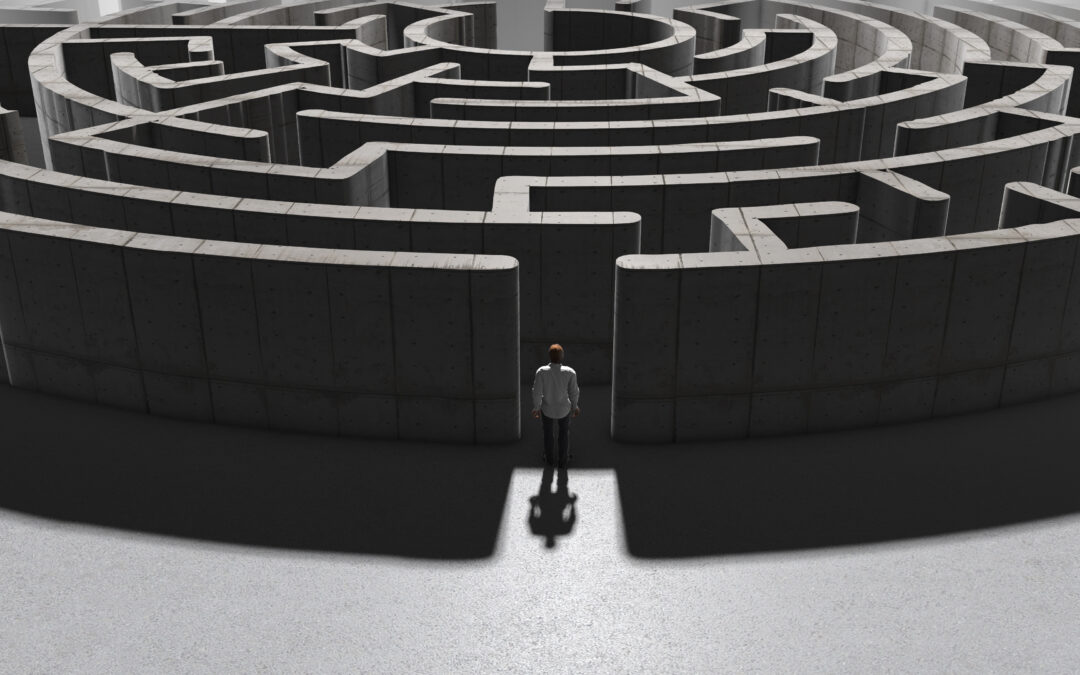Organizations around the world are undergoing a real time crash course in how profoundly our ways of working have shifted forever over the past several years. Based on my conversations and anecdotal observation, many executives are struggling to balance the competing priorities between the needs of the organizations they lead and the needs of their employees – priorities that can sometimes seem to be at odds with one another
Shifting to “hybrid work” is one way organization have attempted to address the competing needs and navigate the complexity of the new ways of working. But as we see in any complex system, a change to one part of the system impacts others in often unknown and unpredictable ways. The human tendency in these moments is to seek certainty by trying to go back to the past.
But complexity alone isn’t a reason to call our ongoing experiment with hybrid working a failure and throw in the towel. Instead, it’s increasingly essential that leaders of today’s institutions become more capable of navigating and managing complexity – because it’s certainly not going anywhere. As one leader told me recently, she wanted to find “more ease” in the complexity of her leadership.
That was one of my key take-aways from a recent podcast conversation. I was honored to host Carolyn Coughlin and Jennifer Garvey Berger, partners at Cultivating Leadership and authors of the new book, Unleash Your Complexity Genius – Growing Your Inner Capacity to Lead. Their work offers insights and best practices to not only help readers better understand strategies to manage the complexity of modern society, but also tap into their own nervous system to redefine their emotional experiences and connect more deeply to others, reducing anxiety and exhaustion in the process.
A few insights I left our conversation jotting down for myself:
Complexity isn’t just outside of us. As Jennifer put it, “Complexity is life…the last few years have shown us all that growing ourselves to be able to handle a complex world is like hitting the ‘go’ button. It’s what we need to do in order to begin confronting today’s challenges.” We often can’t do very much to control the external factors causing complexity in the world around us, from inflation to climate change. But what we can do is focus on our internal responses to chaos around us and carve out a sense of calm.
Our bodies have a key role to play in our ability to manage the stress associated with complexity. Our “fight of flight” impulses can kick in when we’re confronted with additional complexity coming at us in our personal lives, in our public discourse, and in the workplace. This can be disastrous in narrowing our focus at the very time that complexity should be pushing us to broaden our aperture and be open to new perspectives. I was reminded that managing complexity isn’t an entirely mental or theoretical exercise; it also requires that we pay attention to exercise, diet, wellness, and taking care of our physical selves.
“Intentional evolution” is a core power skill. Leaders today must cultivate the emotional intelligence to grasp gaps between their capabilities and new challenges. Lifelong learning (and even un-learning) is essential in navigating a seemingly daily paradigm shift across industries and sectors.
Practice “genius behavior.” My guests also shared their insights on what they call “8 geniuses” – ways we can reconstruct our emotional experience toward emotions that are conducive to a “complexity-friendly” mode. These are interconnected behaviors that can regenerate our sense of joy and impact our physical selves as much as our mental gears. They “aren’t rocket science,” but can take time to cultivate into habit.
- Noticing
- Grieving
- Moving
- Sleeping
- Laughing
- Wondering
- Experimenting
- Loving
In truth, humans have an incredible capacity for handling complexity The paradox of today’s age is that we feel less able to handle it in the face of today’s organizational, societal, and technological shifts – admittedly all playing out faster than complex forces in the past. As my guests told me, “Tomorrow isn’t going to be like yesterday.” Rather than resisting complexity – as fruitless a task as resisting change itself – consider the new opportunities created by added complexity.

